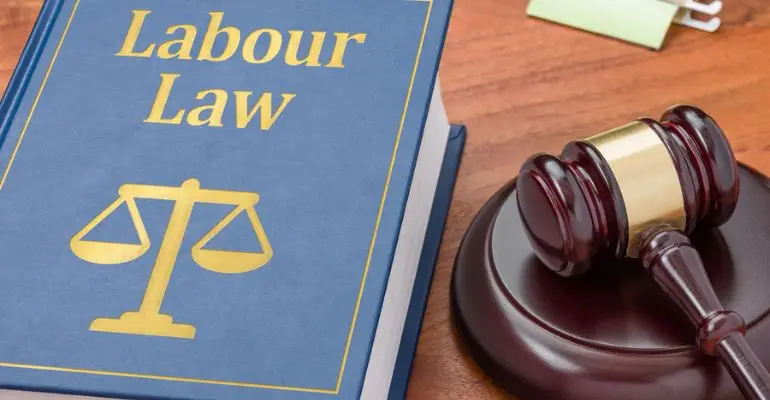What to Expect When You Sue Your Employer (+ Pros and Cons)

Suing your employer is not a decision to be made lightly. Even when you and your attorney believe you have a meritorious case, there are certain factors you will want to consider before deciding to sue.
Working with an experienced employment law attorney from the outset is the best way to ensure you are fully prepared for the ups and downs of suing your employer. The process of obtaining compensation through the courts can be long and stressful. With a committed attorney by your side, you can be confident that someone is looking out for your best interests and legal rights.
Knowing what to expect when you sue your employer can help you successfully navigate this process and make the right decisions for your situation.
Understanding the Legal Grounds for Suing Your Employer
Lawsuits against employers typically occur when an employer has infringed upon an employee’s rights and an informal resolution between the employer and the employee cannot be reached. Common examples of wage and hour employment litigation are off-the-clock work, failure to pay overtime, and unpaid wages.
There are federal and state laws that protect you against employment discrimination when it involves unfair treatment by your employer because of your race, color, religion, sex (including pregnancy, gender identity, and sexual orientation), national origin, age (40 or older), disability or genetic information. It is also unlawful for your employer to discriminate against you during the hiring process. For example, refusing to hire you or passing you over for a promotion on the basis of your race, color, religion, sex (including pregnancy, gender identity, and sexual orientation), national origin, age (40 or older), disability, or genetic information.
Fostering and failing to prevent a hostile work environment is another situation that can lead to a workplace lawsuit. An employer cannot turn a blind eye to employee-on-employee harassment or discrimination. Even if managers and supervisors are not the ones engaging in such behavior, the employer can be liable if they do not adequately address it. Harassment by any person, including coworkers, customers, and clients, can violate the law. Any person can be the target of sexual harassment regardless of their sex.
Additionally, you may have the right to sue your employer if you face retaliation from your employer for opposing, refusing to participate in, or reporting a policy, practice, or procedure that violates a law, rule, or regulation. Known as “whistleblower” lawsuits, when you bring your employer’s wrongful conduct to light and are then punished by your employer, for example, by being fired, you have rights under the law to address this potentially unlawful behavior against you.
Pros and Cons of Suing Your Employer
There are both benefits and potential drawbacks to filing a lawsuit against your employer. Consider these common pros and cons of filing workplace lawsuits:
|
Pros |
Cons |
|
Allows you to assert legal rights and protections |
Can be time-consuming and stressful |
|
Provides a way for you to obtain financial compensation |
Can result in reputational harm |
On the positive side, a lawsuit is a definitive way to assert and protect your legal rights when your employer has violated them. If you have tried to resolve the matter informally with your employer, having a judge, jury, or government authority vindicate your position may be your only remaining avenue to continue asserting your legal rights.
A lawsuit against your employer can also be the only effective way to obtain compensation for the harm you suffered. If your employer failed to pay you wages or discriminated against you and caused you financial losses, a lawsuit can be an effective means for obtaining the compensation you are owed.
However, lawsuits can be time-consuming and stressful. Even when you have a valid reason for bringing a lawsuit, your professional reputation may suffer. Although an employer refusing to hire you because you filed a discrimination complaint against your previous employer is illegal, that is, unfortunately, a possibility when seeking a new job.
Your employment law attorney can help you understand other specific benefits and drawbacks of bringing a lawsuit based on your circumstances.
The Legal Process of Suing Your Employer Explained
In most employment discrimination disputes, before filing suit in court, employees must first file a claim with a government agency, such as the Equal Employment Opportunity Commission. An experienced employment law attorney can help you with this administrative process.
Filing a lawsuit against your employer begins with your attorney preparing your complaint, which outlines your claim against your employer, the facts supporting your claim, and the relief you are requesting.
After the complaint is served on your employer (i.e., the procedure used to notify a defendant of the lawsuit), your employer has the opportunity to respond to the allegations and defend against your claims. There are several ways an employer may respond, one being by filing an answer. In this answer, your employer may deny the underlying facts in your complaint and assert defenses. Your employer may also bring a counterclaim against you.
After this, your case enters the discovery phase, during which you and your employer will gather and exchange evidence and information. Your lawyer might conduct depositions of key witnesses and request that your employer turn over important documents and evidence. Your employer will make similar requests of you, too. You will likely be deposed (a deposition is a formal process where lawyers from both sides ask questions under oath; it’s a chance for the employer’s lawyer to understand your side of the story and gather information). The discovery process can last several months, especially in complex employment law cases.
Motions (a request to the court for some type of relief) will likely be filed throughout this process. It is not uncommon for one or both parties to request that the court hearing the case enter a judgment in their favor based on any undisputed facts.
At any point, you and your employer can agree to settle your case along terms you both find agreeable. In Florida, the local rules require most litigants to participate in mediation, which is nothing more than a settlement conference presided over by a certified, qualified, neutral mediator with the goal of settling your case prior to trial. If this does not happen, your case may eventually reach trial, where you bear the burden of proving you are more likely than not entitled to legal relief. Preparing for and participating in a trial is one of the most time-intensive and difficult aspects of a lawsuit—for everyone.
Your employer will contest your assertions and present evidence as well. A judge or jury would then render a verdict and decide your dispute.
Preparing for Potential Retaliation and How to Handle It
A lawsuit represents an expense for your employer and a distraction from their business that exposes them to negative publicity. It is not uncommon for employers to feel a sense of betrayal from employees who file suit against them. For these reasons, you should be prepared for the possibility of retaliation from your employer.
Retaliation can take several forms, from unfair disciplinary treatment, reduction in hours, or pay to your employer firing you.
Document any perceived retaliation you experience in detail, and let your attorney know so you can determine what to do about it.
Can You Keep Your Job While Suing Your Employer?
You can continue working for your employer after filing a lawsuit against it. However, pursuing a lawsuit against your current employer can create an awkward work environment. Be prepared for subtle changes in how colleagues and management interact with you, as these situations can create tension in the workplace.
Communicate politely with HR and management and check with your lawyer before discussing the lawsuit with anyone. Not everyone you work with will know about your lawsuit, nor should they.
And remember that filing a lawsuit is not a lawful reason for an employer to fire its employee.
The Potential Outcomes of Your Lawsuit
The Outcomes of a lawsuit can vary widely, ranging from financial settlements, reinstatement at work, changes in employment policies, or, in some cases, going to trial. Each case is unique, so outcomes will depend on the specifics of your situation and the strength of your evidence. Television and movies portray lawsuits as resolved through a trial before a judge or jury. While this can and does happen, chances are that your case will settle prior to trial.
In negotiating a settlement, you and your employer agree on terms that can include dropping your lawsuit in exchange for receiving compensation and damages from your employer, among other provisions, such as confidentiality.
Seeking Legal Advice and Support
There are a lot of things you need to think about and know before bringing a lawsuit, including an assessment of the potential impact on your personal and professional life. If you are considering suing your employer, it is crucial to seek professional legal advice. Working with a knowledgeable employment lawyer who can guide you through each step of the legal process helps ensure the best possible outcome for your case.
The seasoned team at Wenzel Fenton Cabassa, P.A. can help you explore the benefits and drawbacks of filing a lawsuit in your case. We will fight tirelessly to secure the justice you deserve and support you every step of the way. Contact us for a free case evaluation with a skilled Florida employment law attorney today. We have wrongful termination lawyers, workplace retaliation lawyers, discrimination lawyers, wage dispute lawyers, and many other practice areas.
Please Note: At the time this article was written, the information contained within it was current based on the prevailing law at the time. Laws and precedents are subject to change, so this information may not be up to date. Always speak with a law firm regarding any legal situation to get the most current information available.
Related Posts

FREE HELP GUIDES
Dealing with unpaid wages, discrimination or wrongful termination? Get the information you need to protect your workplace rights. We offer employment law resources to help you fight for workplace justice.




